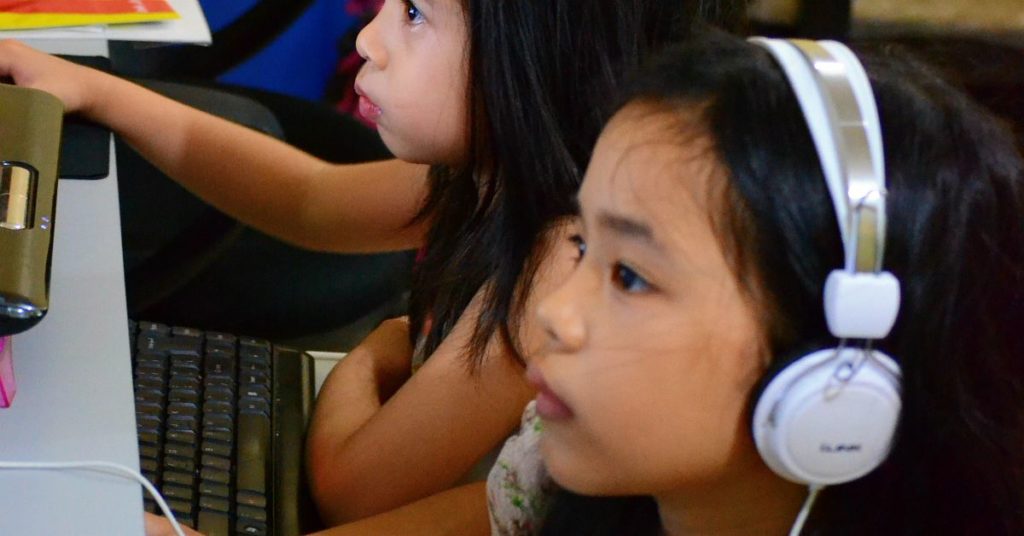Online users are well aware that kids can be naughty and hide their online activities from their parents. Previous studies by Kaspersky have since revealed that children have a lot of secret activities online unknown to their moms and dads. However, the latest survey by the global cybersecurity company has unmasked that parents in the Asia Pacific (APAC) region do the same with their kids.
Conducted between the first two months of 2020, the fresh report titled ‘Defending digital privacy: taking personal protection to the next level’, asked respondents: Whom are you afraid of seeing or having access to your private information? Surprisingly, the highest percent (10.3%) was given for children, followed by partner or spouse (9.9%), and parents (9.1%).

“Ironically, online users in APAC are more concerned of having their blood relatives or relationship partners seeing or accessing their private data online way more than malicious actors. In fact, our survey showed cybercriminals is their least concern with only 3.1%,” comments Stephan Neumeier, Managing Director for Asia Pacific at Kaspersky. “This truth is really alarming in the sense that these virtual criminals are actively riding the current chaos, urgently looking for new preys to loot money or information. The lack of awareness and the needed fear to keep their hands off our data can put our online assets and reputation at risk.”
Who are you afraid of seeing or having access to your private information? Survey says:
| Average | % |
| Your partner / spouse | 9.9 |
| Your parents | 9.1 |
| Your children | 10.3 |
| Your family in general | 8.7 |
| Your employer | 7.4 |
| Your friends | 8.2 |
| Your colleagues | 7.7 |
| Cybercriminals | 3.1 |
| Government of your country | 7.8 |
| Internet in general | 5.3 |
| Internet retailers (Amazon etc) | 7.5 |
| Social networks (Facebook, Twitter etc) | 6.4 |
| Big IT companies such as Google, Microsoft or Apple | 7.7 |
| Other companies | 8.0 |
| Other people in general | 8.4 |
To better understand the psychology behind the survey results, Dr. Joel Yang, Clinical Psychologist of Mind what Matters in Singapore noted that the statistics can be viewed through a cultural lens given that the region is largely constituted with more collectivistic societies.
“Collectivistic attitudes typically encourage the “correctness of social relationships” and such ideals emphasize hierarchy in family structure. It is key to the social harmony that each member understands and plays their role. In the family unit, this means that children are expected to show respect to their parents without question. This perpetuates the behavior of parents not disclosing any private matters to children which may bring any question to the authority of the parent,” notes Yang.
“Another interesting finding in this survey is that parents in APAC are not as worried about cybercriminals accessing their private information as others globally are. Through the same cultural lens, people place more trust in the governing bodies and believe that their interests will generally be taken care of,” he adds.
Another research from Kaspersky unmasked that parents care about their kids’ online safety but spend less time to educate their kids about online security. More than half (58%) of the surveyed respondents admitted speaking to their children about the subject for less than 30 minutes.
“Trust is important to keep the familial bond intact. Parents should establish openness through constant communication, discuss both the physical and online lives of their children. As guardians, moms and dads should show their kids that they are allies on the internet and their mutual enemy are cybercriminals. From there, they can build on educating the young and themselves about the best online habits,” adds Neumeier.
To help families protect children from various internet threats, Kaspersky recommends:
• Establish open communication about online activities.
• As parents, you should also be transparent about your missteps online, if you have any. This way, your child will know that you are in this together.
• If you know what your child is looking for online, you can offer help and support, but use the information carefully.
• Discuss with your child how much time they can spend on social media. Try to persuade your child not to use social media during school lessons or at night.
• Try not to limit your child’s social circle, but tell them to take care when choosing friends and acquaintances.
• Subscribe to the Family edition of our Kaspersky Security Cloud. The service incorporates Kaspersky Safe Kids and helps to guard your family and private data, plus protect your kids online and beyond.



That is a very very important article EVERY parent should be made aware of, THANK YOU SO MUCH….Sharing it.
What an interesting survey. It is such a bummer that kids hide what they are doing online from their parents but If the internet was around when I was a kid I’m sure I would totally do that too.
These are some great tips. I will definitely use these when my child is old enough for the internet.
These are really good tips and something every parent should be aware of. The internet can be a really dangerous place.
Always talk to kids about internet use. My parents blocked all websites that I wasn’t allowed on 🙂
Love these tips, there are so important!
This is sound advice and insight. Kids must be taught about appropriate use and not merely shielded.
I have seen my sister in law talking to kids about internet. And this is really an important article.
Even with all of the right safeguards in place, it is so hard to deal with the ins and outs of our kids online every day. I do the best I can.
I love this. It is vital for every parents to know all this and discuss at length with their kids. It is better to be save then be sorry.
Every parent need to read the article. Internet is really dangerous sometimes for kids and ofcourse for adult too
Very informative. Understanding the rationale behind the survey was really interesting. Thanks for sharing.
The internet is a sick place for kids.I’m glad this research was conducted.There is need to protect our kids because they don’t speak out even if they are being threatened.
Nowadays, Kids more attractive in gadgets and online app. That’s why we oblige to limit their usage of it. and blocked apps that has bad effects on them.